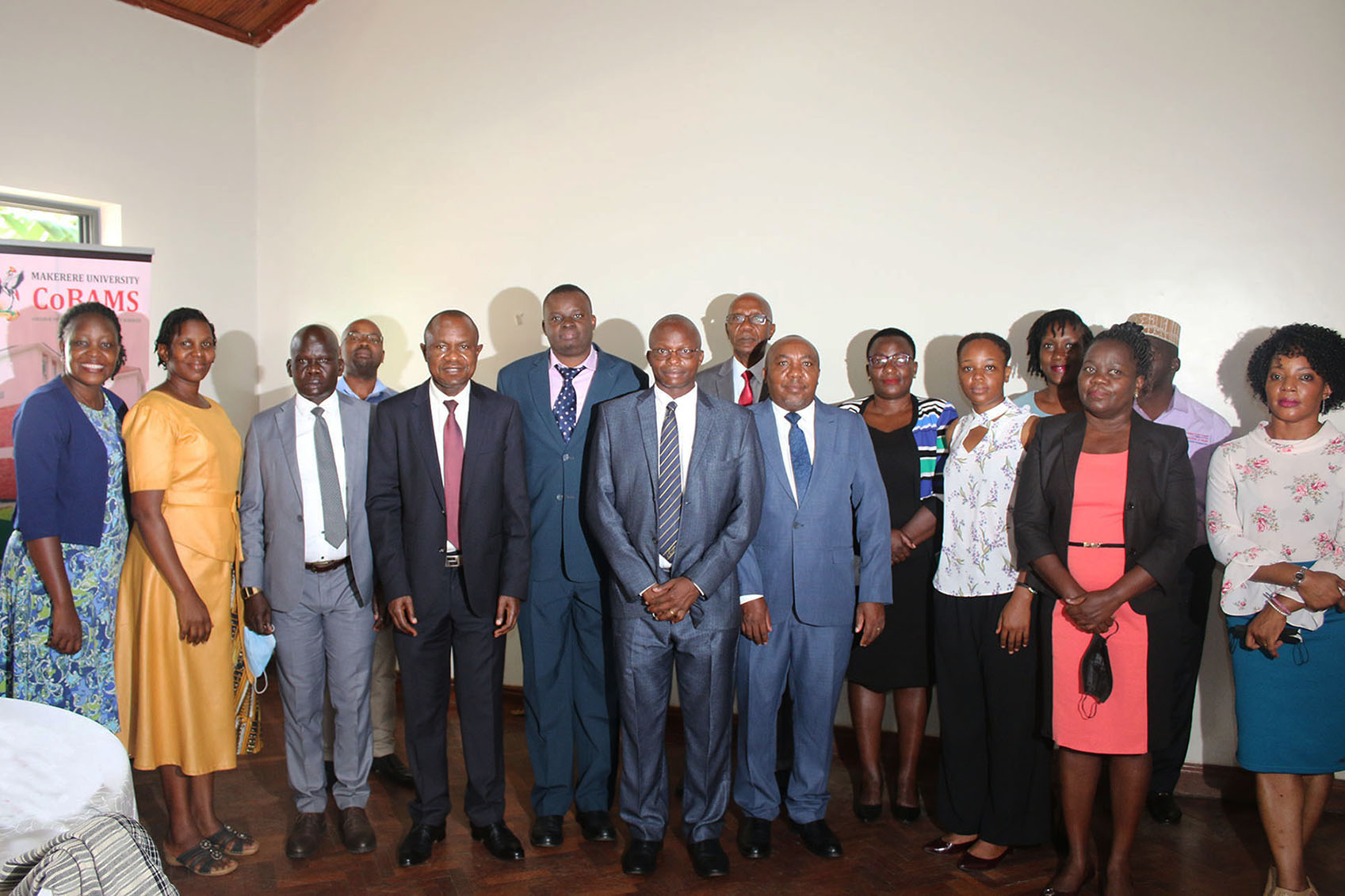The government has been asked to integrate parent-child communication into sexual reproductive health programs in an effort to reduce teenage pregnancies.
The call was made by a team of researchers from the Department of Population Studies, College of Business and Management Sciences, in collaboration with a team from Ministry of Gender, Labour and Social Development.
The group was presenting research findings of their paper titled “Parent-Child Communication on Sexual and Reproductive Health in border districts of Eastern Uganda”
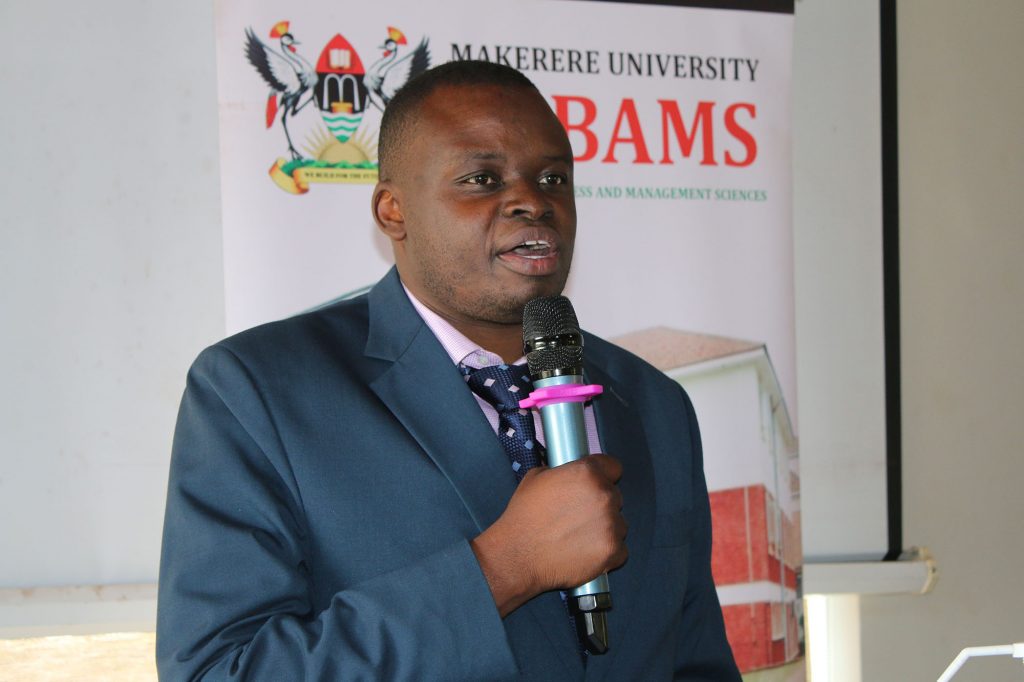
During a dissemination workshop held on March 10, 2022 in Kampala, Dr. Stephen O. Wandera, the principal Investigator, said research revealed that both parents and children were afraid of talking about sexual reproductive health issues. The study showed that 79% of the parents and 61% of the children reported discussing sexual reproductive healthissues.
“Parents feel like things to do with sexual health should not be discussed between a parent and a child. It is considered a taboo,” Assoc. Prof. Betty Kwagala, a member of the research team said.
The research also showed that good quality of parent-child relationships, close monitoring and keen interest in children and their behaviours facilitate good Parent-Child Communication (PCC). Support from religious leaders and Institutions was identified as a facilitator of PCC.
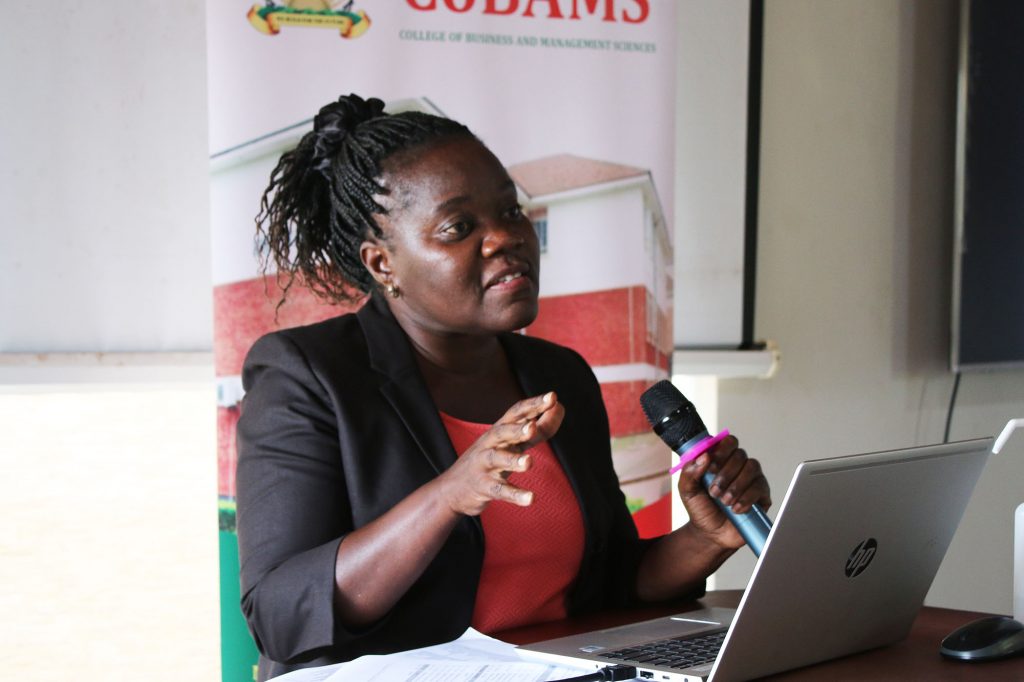
Dr. James Wokadala, the Dean of the School of Statistics and Planning remarked that “Issues of health are very strongly emphasized in the National Development Plan III and the results of this research will inform not only knowledge and skills but also will guide policy engagement and policy direction, particularly on issues of sexual and reproductive health in Uganda.” Dr. Wokadala also thanked the research team, led by Dr. Stephen Wandera for the wonderful work done and appreciated the Ministry of Health for joining the research by providing the technical eye from the Ministry.
“This is an appetizer for us moving forward.” Dr. Wandera said. “It will pave the way for the monthly seminar series such that output like this can be shared country-wide and provide an opportunity for us to receive feedback from stakeholders so we can improve on our research outputs.”
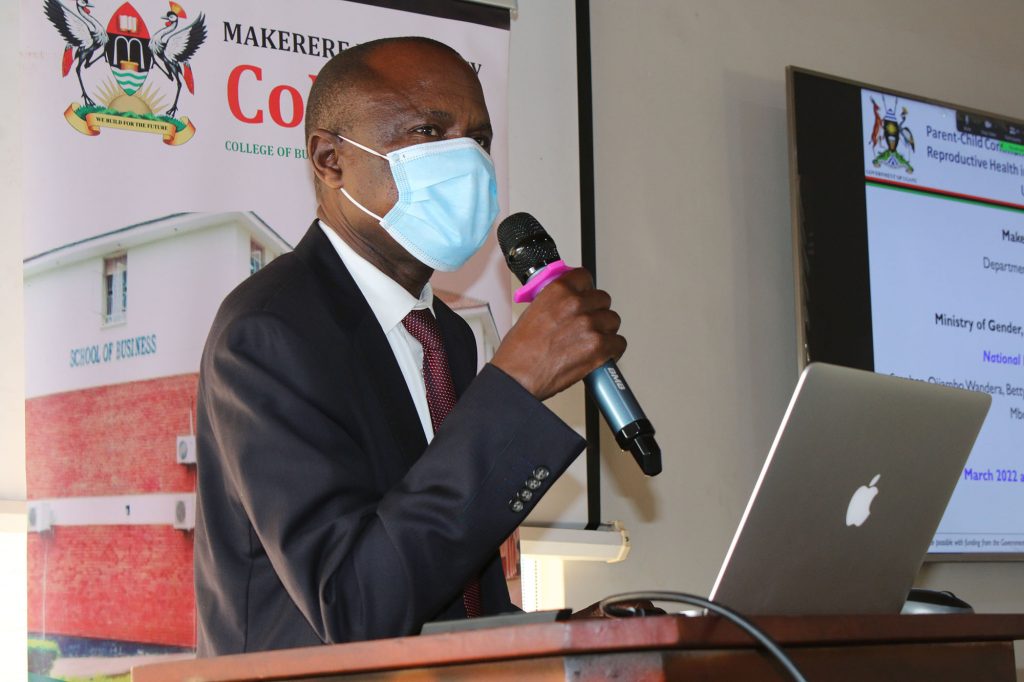
Assoc. Prof. Eria Hisali, Principal of the College of Business and Management congratulated the study team for winning the grant and also for being able to successfully execute the work in a timely manner. He also appreciated the Government of Uganda through the Research and Innovation Fund for supporting the research work. Prof. Hisali noted that there has been a considerable breakdown in the structures of society today. In the past, the responsibility of raising a child wasn’t for only the nuclear family, but rather was the responsibility of a larger community. He called for the researchers and guests to reflect on the past, looking at the practices in raising children and adopt the good, neglecting the bad in them.
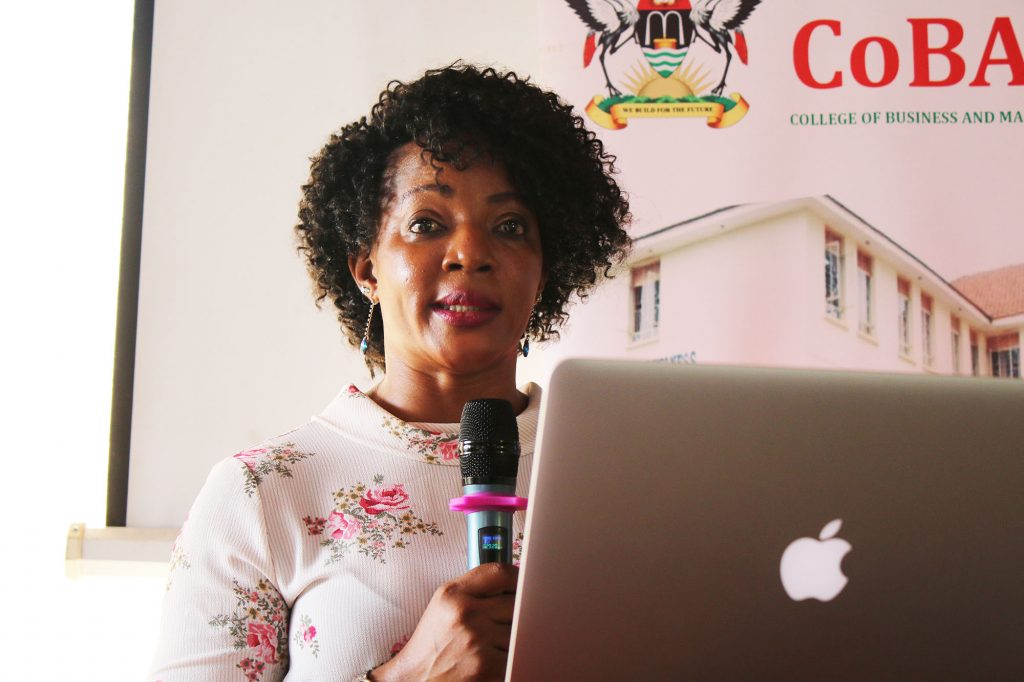
Dr. Sabrina Kitaka, Senior Lecturer of Paediatrics and Child Health, who represented the Chair of the Grants Management Committee of the Makerere Research and Innovation Fund congratulated the research team on their dissemination.
“As a paediatrician and as an adolescent health expert, this topic is pertinent to me. Many girls got pregnant during the COVID-19 lockdown and one of the studies we conducted in the districts of Kamuli and Wakiso showed that many of the girls who got pregnant had very poor parent-child communication,” Dr. Kitaka said.
“As an adolescent health expert, one of the things that children always tell me is that they would like parents who have a very small mouth and big ears- parents that talk less and listen more to their children.”
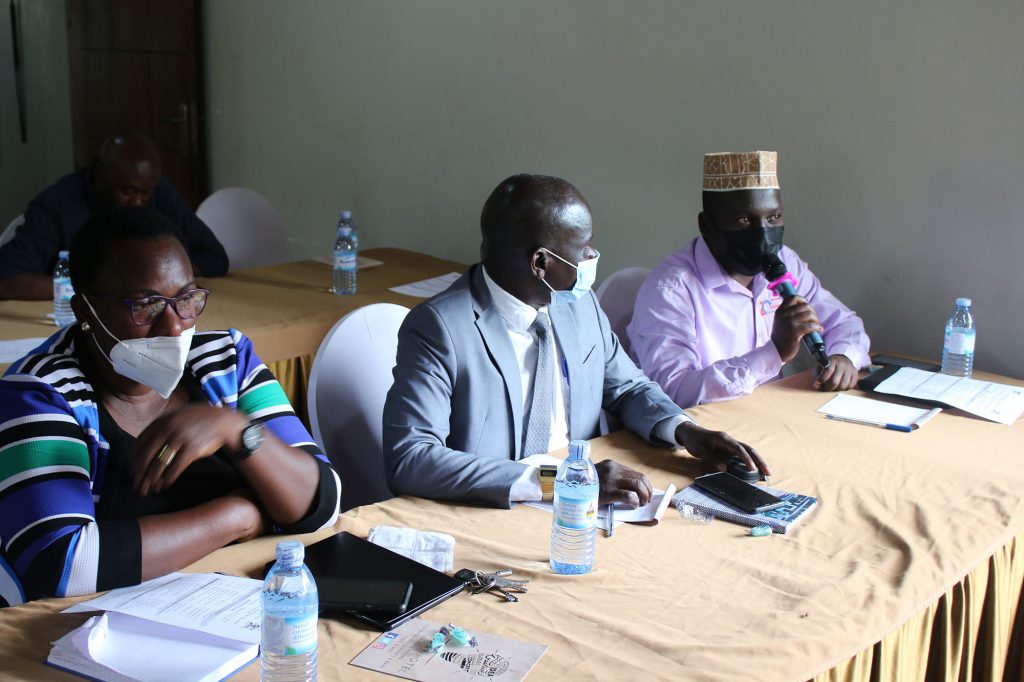
Young adolescents in developing countries prematurely experience a host of sexual and reproductive challenges. These include early sexual debut, sexually transmitted infections (STIs), unsafe abortions and childbirth with detrimental sexual and reproductive health (SRH) and socio-economic consequences. This project assessed children and parents’ knowledge, attitudes, and practices (KAP) and the determinants of PCC about SRH in in the boarder districts of Busia and Tororo in eastern Uganda.
Recommendations
Mr. Fred Ngabirano, the Commissioner, Children and Youth Affairs at the Ministry of Gender, Labour and Social Development presented the recommendations of the research. He explained that, according to the research, Government should develop and implement a “Responsible Parenthood” programme for parents. The study also recommended that the government develops age appropriate, and contextualized SRH information, education, and communication (IEC) package and approaches.
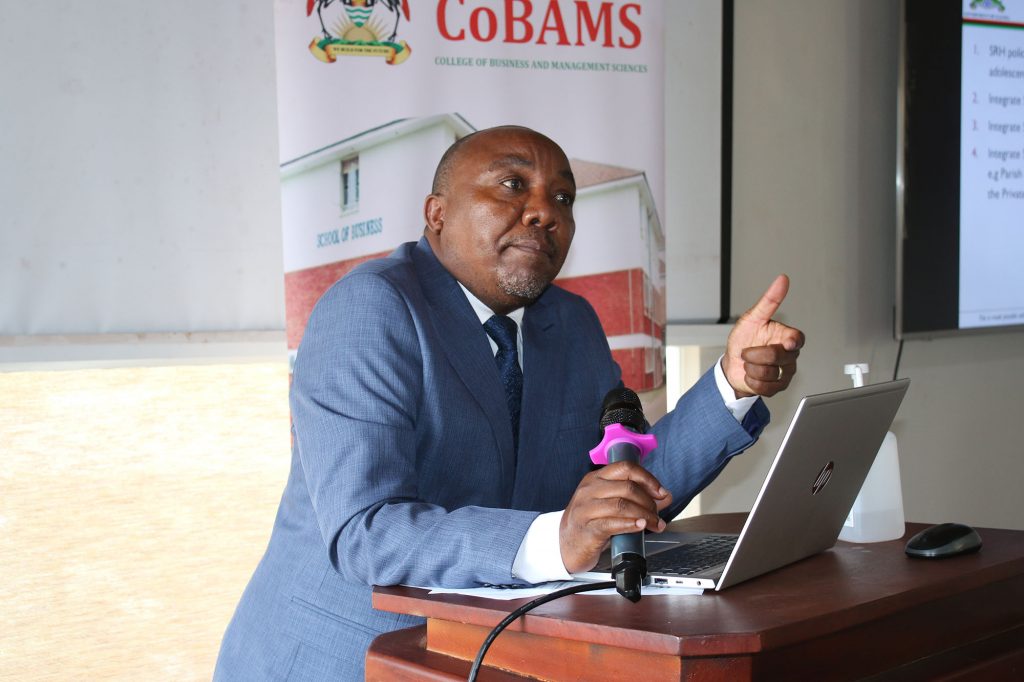
Mr. Ngabirano, also a researcher on this project also explained that according to their findings, government should recruit and equip parent peer educators and promote shared/community parenthood and should also strengthen child protection mechanisms at various levels and address the gaps in the enforcement of child protection laws.
Dr. Wandera appreciated the study participants, children, adolescents and parents for giving the team valuable feedback and input, through a very engaging process. Dr. Wandera also appreciated the research team, which was composed of Assoc. Prof. Betty Kwagala, Dr. Patricia Ndugga, Dr. Peter Kisaakye, Dr. Martin K. Mbonye, Mr. Fred Ngabirano and himself. He thanked them for the amount of effort and dedication put into seeing the study to completion. “Let this be the start of conversations about parent child communication, regarding sexual reproductive health. Let’s not close the conversation” I am very glad for the opportunity we had to conduct research together with government. This has been a day where policy makers, researchers and programmers have met to dialogue on critical issues that affect the country.
The dissemination workshop was attended by officials from the Ministry of Health, representatives from the Ministry of Gender, Labour and Social Development, representatives from Civil Society, religious leaders and the press.

